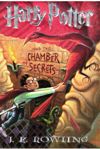 In the sequel to Red Thunder and Red Lightning, we yet again skip ahead a generation, this time to Podkayne, granddaughter of Manny and Kelly. Martian born and bred, she is drafted (as all are) into service with the Martian Navy. The book starts by ridiculing Earthies (those who live on Earth) as generally helpless and whiny. It is hard to find too much fault in that assesment, but more about that later. As is sometimes the case with Varley, he writes more chronicle than anything else, and thus we follow the meanderings of Podkayne. It isn’t until the second half that things really start to happen. By then a very gloomy post-9/11, post-Katrina view has settled onto the book. If it weren’t for cheery Podkayne, this would not be a very cheerful book. In the end, the protagonists make a big decision, and there is a happy ending, of sorts.
In the sequel to Red Thunder and Red Lightning, we yet again skip ahead a generation, this time to Podkayne, granddaughter of Manny and Kelly. Martian born and bred, she is drafted (as all are) into service with the Martian Navy. The book starts by ridiculing Earthies (those who live on Earth) as generally helpless and whiny. It is hard to find too much fault in that assesment, but more about that later. As is sometimes the case with Varley, he writes more chronicle than anything else, and thus we follow the meanderings of Podkayne. It isn’t until the second half that things really start to happen. By then a very gloomy post-9/11, post-Katrina view has settled onto the book. If it weren’t for cheery Podkayne, this would not be a very cheerful book. In the end, the protagonists make a big decision, and there is a happy ending, of sorts.
While Red Thunder was a very positive book, and Red Lightning was at least mildly optimistic, Rolling Thunder paints a very bleak picture of Earth’s future, with billions dead and the planet rendered uninhabitable. Certainly the catastrophes depicted are not man made (unlike in Red Lightning) but it is clear that mankind had already started the processt”. Podkayne is a serviceable protagonist, but she is no Manny or Ray from the previous books. The end, and I won’t give away the surprising development there, feels a bit too much as if Varley wanted to tie up the loose ends any which way. I do love reading Varley, and this was, as always, entertaining. His voice is mesmerizing and his insights into human character are always interesting and novel. However I do feel that this was not on par with most of his work. Or perhaps he just gave me a bit too much of the blues.

 In the first book of the Empire of Man series, Crown Prince Roger is a spoiled, annoying brat. When his ship is sabotaged and crashes in the wilderness on a backwater planet, he is forced to rough it towards civilization with a company of Marines from the Imperial Guard. Very enjoyable military science fiction.
In the first book of the Empire of Man series, Crown Prince Roger is a spoiled, annoying brat. When his ship is sabotaged and crashes in the wilderness on a backwater planet, he is forced to rough it towards civilization with a company of Marines from the Imperial Guard. Very enjoyable military science fiction.
































